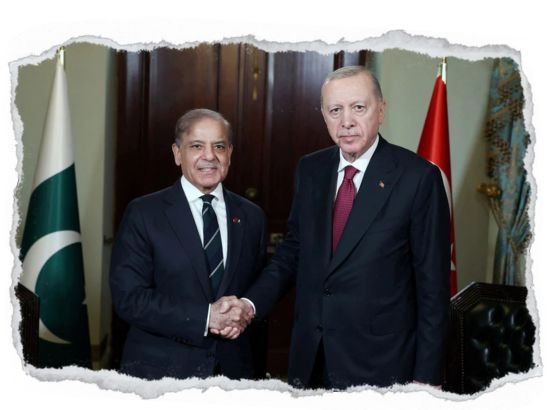
As tensions between India and Pakistan rise following the deadly terror attack in Pahalgam, Pakistani Prime Minister Shahbaz Sharif has sought to bolster ties with Turkey. During a high-profile visit to Istanbul, Sharif met with Turkish President Recep Tayyip Erdogan, thanking him for Turkey’s steadfast support. This meeting marked a significant moment in the Shahbaz Erdogan strategic alliance, as both leaders announced deepening cooperation across various sectors including defense, trade, and energy.
Sharif stated on social media, “It was an honor to meet my dear brother President Erdogan in Istanbul today. I thanked him for his unwavering support during the recent India-Pakistan tensions. We reviewed progress in bilateral trade, investment, and cooperation, and reaffirmed our commitment to strengthen these further. Long live Pakistan-Turkey friendship!”
The meeting comes in the wake of Operation Sindoor, where Indian forces launched a swift cross-border strike on terrorist camps in Pakistan-administered territory. Pakistan reportedly retaliated using Turkish drones and advanced weaponry, bringing Ankara’s military support under the spotlight. Despite Turkey’s denial of direct involvement, Pakistani media claims these Turkish drones played a key role in counter-strikes.
President Erdogan called the meeting both “historic and strategically important.” He emphasized their joint goals in expanding cooperation in energy, defense, transportation, and intelligence sharing. He reiterated Turkey’s unwavering friendship with Pakistan and called for greater collaboration against terrorism, including real-time intelligence exchange and technical training programs.
According to the Turkish presidential office, both countries aim to elevate bilateral trade to $5 billion. They also discussed enhancing the Istanbul-Tehran-Islamabad rail corridor and strengthening academic and cultural ties. Key Turkish officials including Foreign Minister Hakan Fidan, Defense Minister Yasar Guler, and intelligence chief Ibrahim Kalin were present during the talks.
The alliance’s geopolitical weight has grown amid accusations by India that Pakistan harbored militants responsible for the Pahalgam attack, which killed 25 Indian citizens and one Nepalese national. In response, India launched military strikes on nine terrorist sites in Pakistan and Pakistan-occupied Kashmir (PoK). The escalating conflict saw Turkey publicly supporting Pakistan and calling for an international investigation—further cementing the Shahbaz Erdogan strategic alliance.
This growing partnership, especially in the defense sector, poses new dimensions in South Asian geopolitics as both Turkey and China are reportedly aiding Pakistan in its military posture. Analysts suggest this alliance could influence regional balance if current tensions evolve into a prolonged conflict.